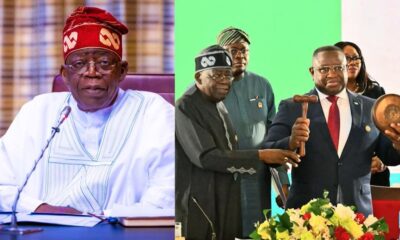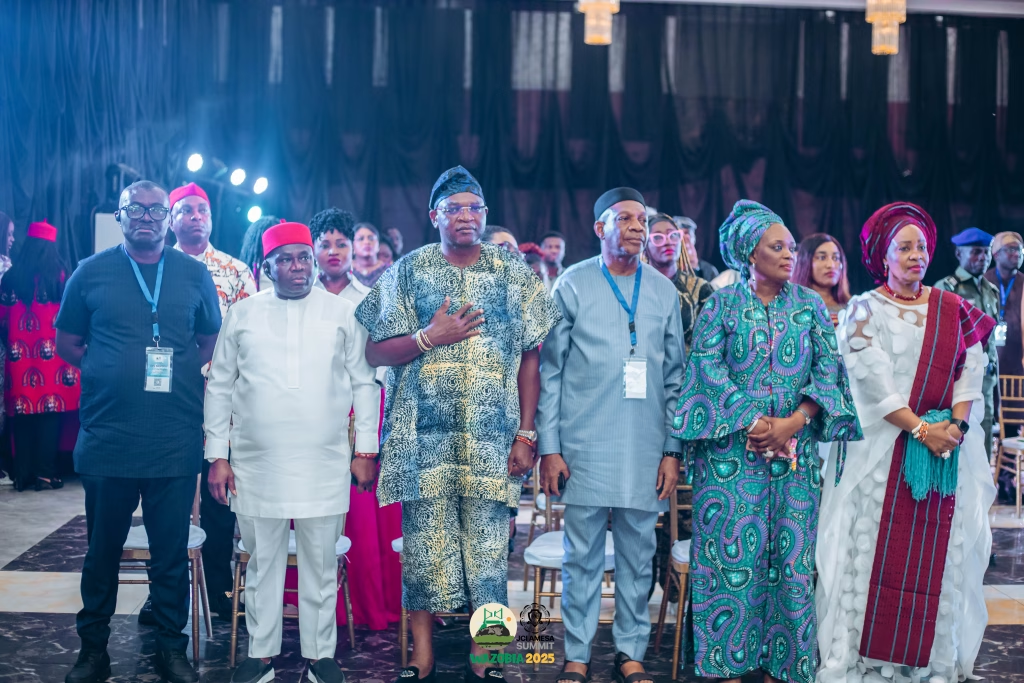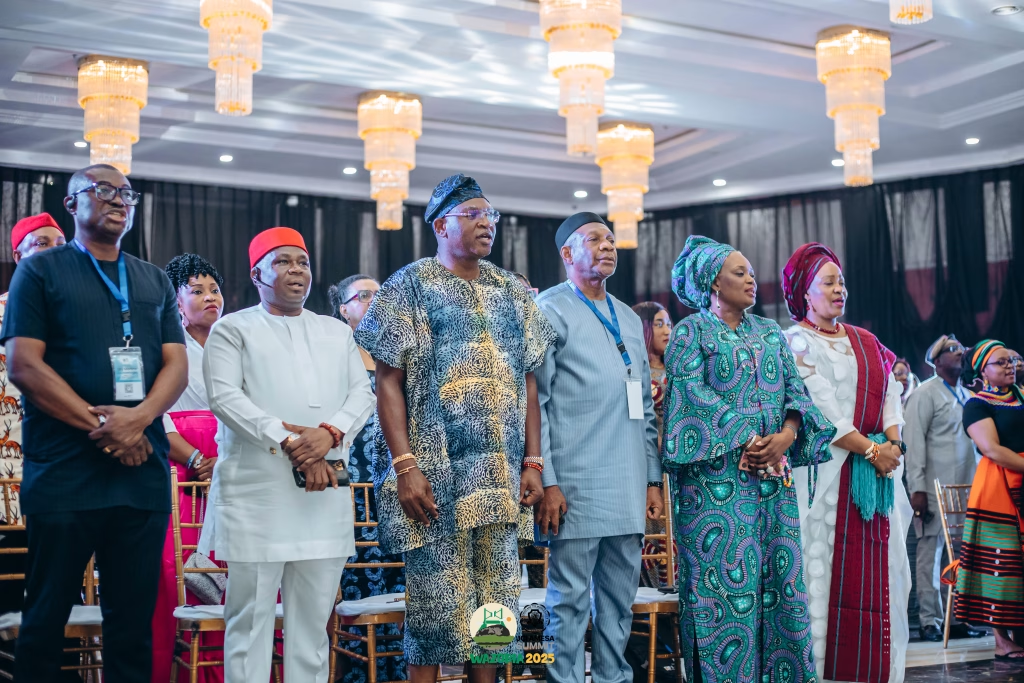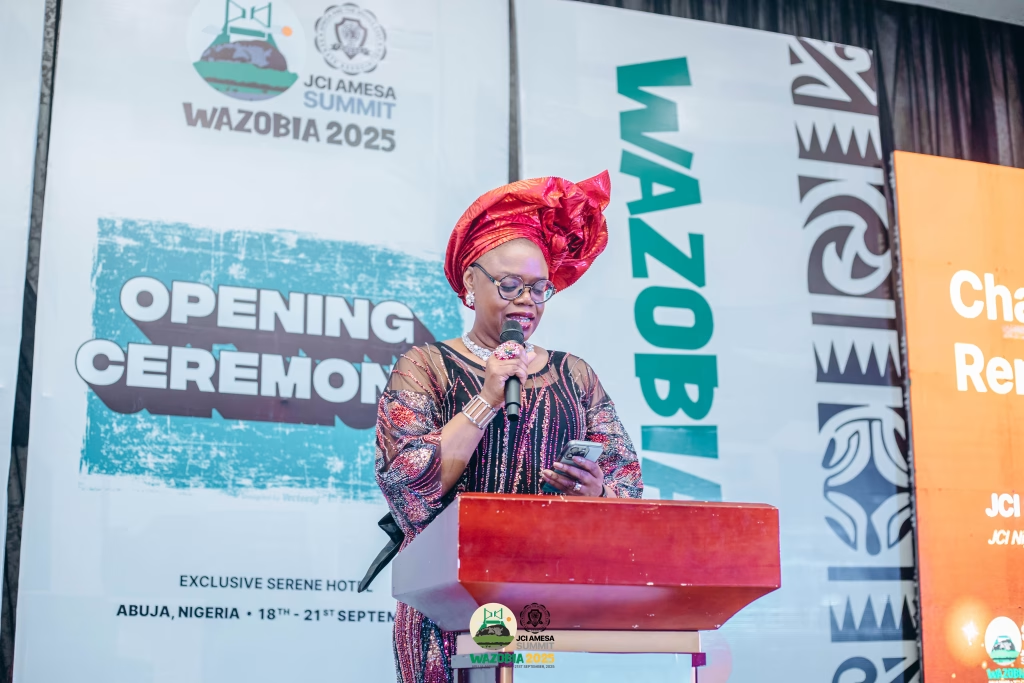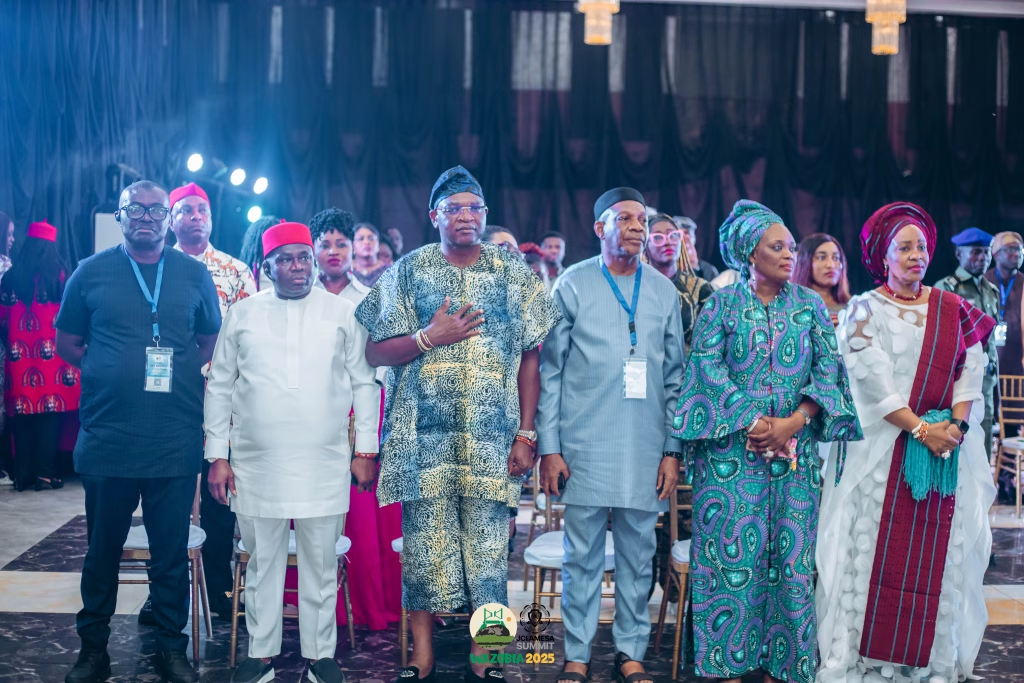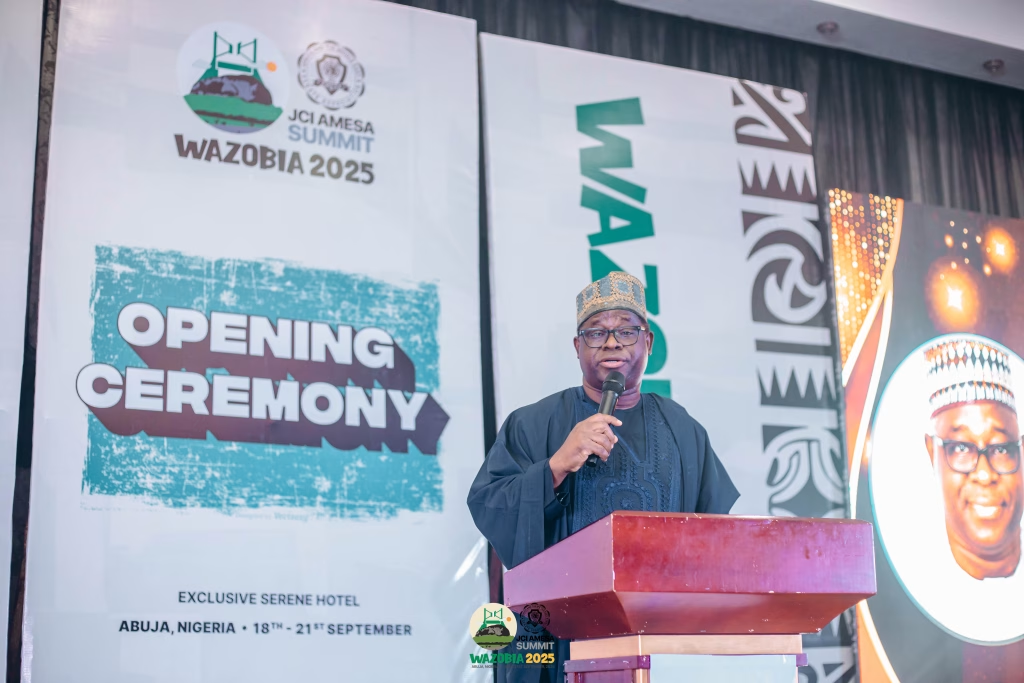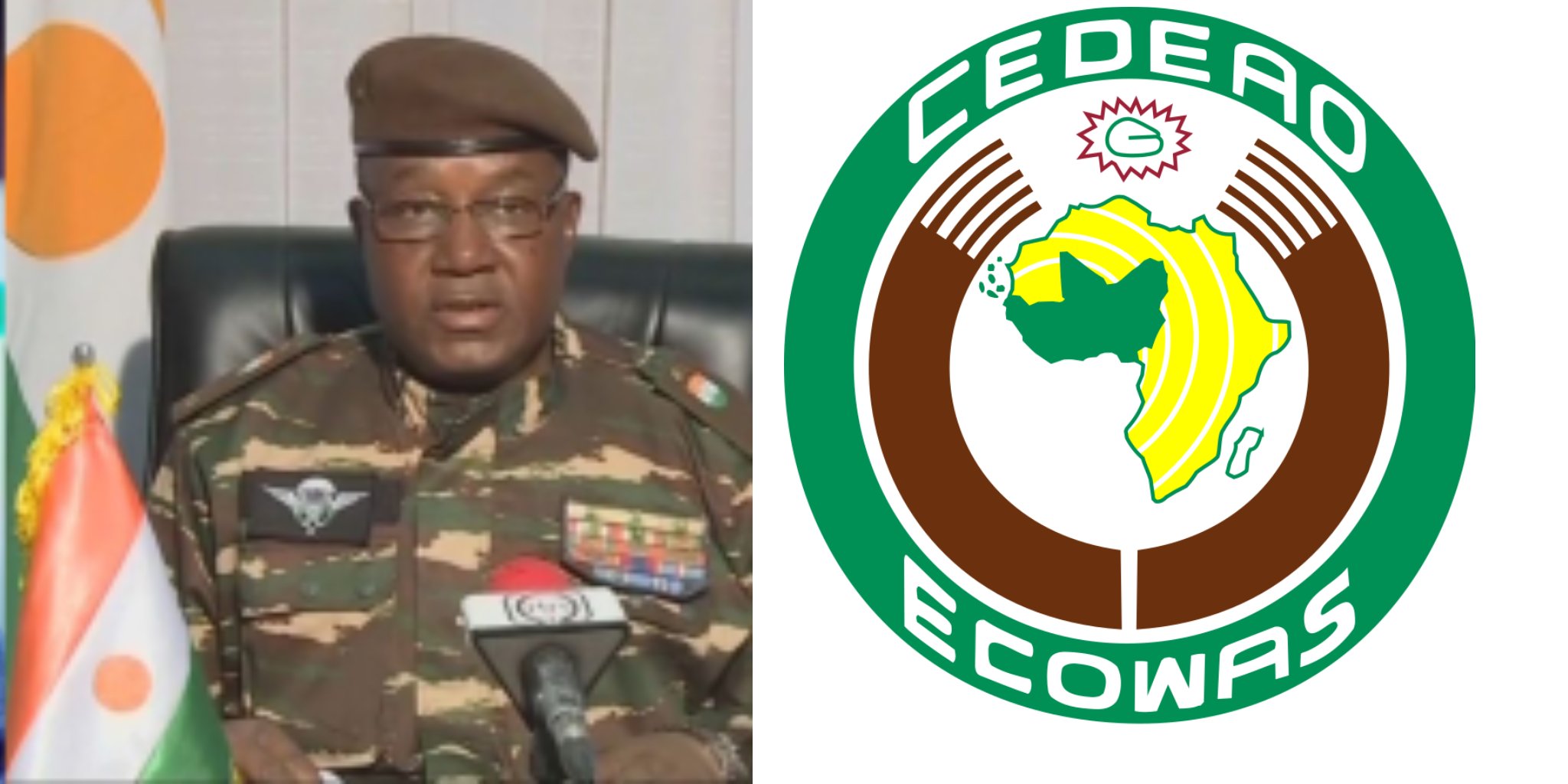

Africa
Niger Coup Leader, Tchiani Agrees To Dialogue With ECOWAS
Niger Republic military junta leader, General Abdourahmane Tchiani has agreed to dialogue with the Economic Community of West African States (ECOWAS).
This comes after his meeting with a delegation of Islamic scholars led by the national leader of Jama’atu Izalatil Bid’ah Wa Iqamatus Sunnah (JIBWIS), Sheikh Abdullahi Bala Lau to the Niger Republic last week.
The Prime Minister of Niger, Ali Mahamane Lamine Zeine, disclosed that General Tchiani has expressed readiness to dialogue with the regional bloc.‘’We have agreed and the leader of our country has given the green light for dialogue.
READ ALSO
- Adeboye to Tinubu: Give Security Chiefs 90 Days to End Terrorism or Sack Them
- Burna Boy, Davido, Ayra Starr, Wizkid Lead Nigeria’s Charge in 2026 Grammy Nominations
- Davido Splashes ₦1.08 Billion on 2025 Rolls-Royce Black Badge Cullinan
- Anambra 2025: 13 Major Candidates Battle to Unseat Soludo
- Full List: FEC Approves Major Road Projects Across Nigeria
They will now go back and inform the Nigerian President what they have heard from us…. we hope in the coming days, they (ECOWAS) will come here to meet us to discuss how the sanctions imposed against us will be lifted,” he said.The Voice of Nigeria (VON) earlier reported that some Islamic scholars from Nigeria met with the coup leaders in Niger over the weekend.
Their meeting came after the coup leaders rebuffed threats by the regional bloc to forcefully restore the country’s ousted leader, Mohamed Bazoum if he was not reinstated by the junta within a week.
Africa
Chad Shuts Border As ‘Terrorists Plan’ To Flee Northern Nigeria Over Planned US Military Attǎck
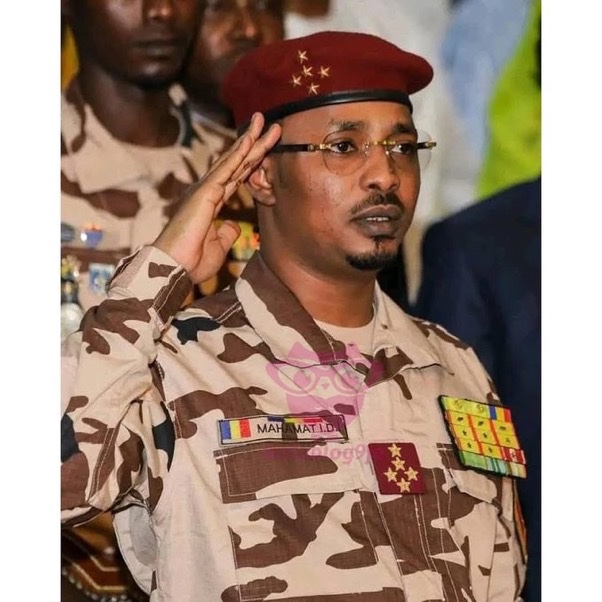
The government of Chad has reportedly closed its border with Nigeria amid rising tension following U.S. President Donald Trump’s warning of a possible military intervention in Nigeria.
Recall that on Friday, October 31, President Trump said there were reports of a “Christian genocide” in Nigeria and subsequently redesignated the country as a “Country of Particular Concern” (CPC) — a move that has sparked diplomatic unease across West Africa.
According to a post on X (formerly Twitter) by security and counterinsurgency expert Zagazola Makama, the Chadian government has since ordered a complete border lockdown.
“Military sources in N’Djamena confirmed on Monday that President Mahamat Idriss Déby Itno ordered a complete military lockdown along the Nigerian border after intelligence suggested that terrorist elements from northern Nigeria were preparing to flee into Chadian territory,” Makama wrote.
The report further revealed that the Chadian army has been placed on full alert, with troops and armoured vehicles deployed across strategic border corridors linking the two nations.
President Déby Itno was quoted as warning that “no armed group or foreign force will be allowed to enter Chadian soil under any disguise.”
The border closure comes amid heightened regional tensions and growing speculation about potential U.S. military activities in parts of West Africa.
Security analysts believe Chad’s decision is a preventive measure aimed at protecting its sovereignty and curbing potential infiltration by armed groups exploiting the region’s instability.
Follow BONA NAIJA for more
Africa
12 Feared Dead in Kenya Plane Crash En Route to Maasai Mara
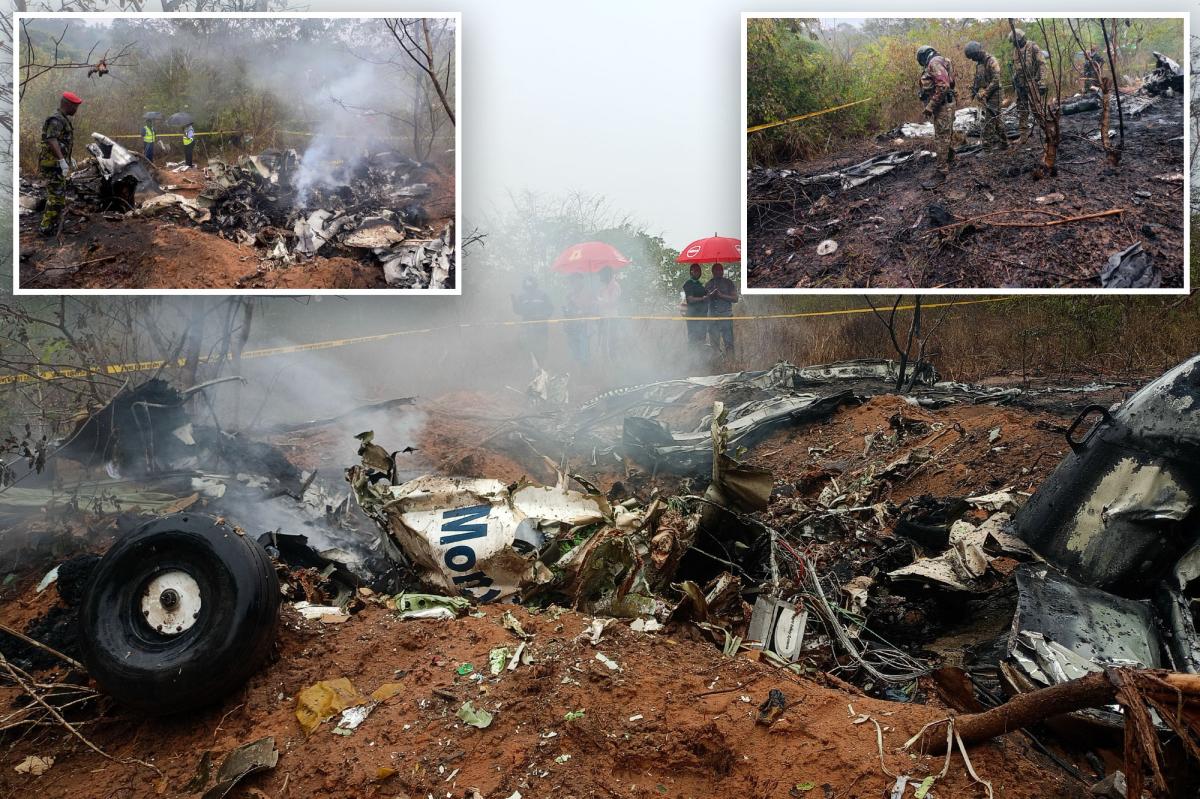
A small aircraft traveling from Kenya’s coast to the Maasai Mara National Park crashed early Tuesday, with all 12 people on board feared dead, according to the Kenya Civil Aviation Authority (KCAA).
The plane departed from Diani, a popular tourist destination, and was headed to Kichwa Tembo, a private airstrip within the Maasai Mara — one of Kenya’s most visited wildlife reserves. The crash occurred around 5:30 a.m. local time (0230 GMT).
“The aircraft had 12 persons on board,” the KCAA said in a statement. “Government agencies are already on site to establish the cause of the accident.”
Authorities have not yet released details about the aircraft model or the nationalities of the passengers. Rescue and investigation teams have been deployed to the crash site to recover the wreckage and assess the situation.
This latest incident comes just months after a light aircraft operated by medical NGO Amref crashed near Nairobi in August, killing six people and injuring two others raising renewed concerns about air safety in the region.
Follow BONA NAIJA for more
Africa
Protesters in South Africa urge government to cut ties with Israel over Gaza war
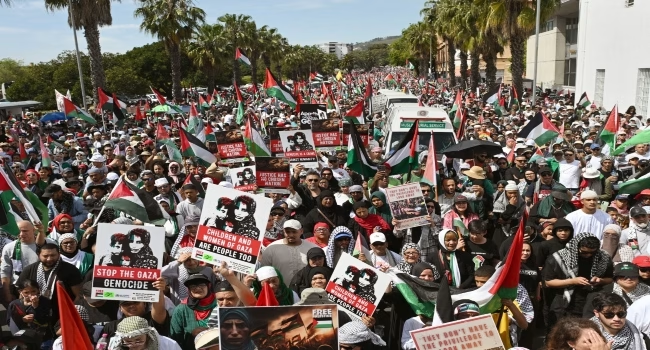
More than 3,000 people marched through Cape Town on Saturday, calling on South Africa’s government to sever diplomatic and trade relations with Israel over its war in Gaza, in one of the largest pro-Palestinian demonstrations in months.
The rally, organised by civil society and faith-based groups, brought together political parties as well as Muslim and Christian organisations. Protesters carried Palestinian flags and placards with slogans such as “Don’t just feel bad, do something,” before handing over a petition to parliament.
The petition demanded the closure of Israel’s embassy in Pretoria, an end to South Africa’s coal exports to Israel, and the prosecution of South Africans who enlist in the Israeli Defence Forces (IDF).
READ ALSO: Ex-Oyo Governor Ladoja Installed as 44th Olubadan of Ibadan
“The government has to take action on the kicking out of Israel’s ambassador and embassy from South Africa now,” said Usuf Chikte, coordinator of the Palestine Solidarity Campaign. He also urged that Israel be excluded from international sporting bodies such as FIFA.
Pretoria has been a leading critic of Israel’s actions in Gaza. In December 2023, it filed a case at the International Court of Justice accusing Israel of genocide, which Israel has denied.
The war began after Hamas-led militants attacked Israel on Oct. 7, 2023, killing 1,219 people, mostly civilians, according to Israeli figures. Israel’s military response has since killed at least 65,926 people in Gaza, also mostly civilians, according to the Hamas-run health ministry, figures the United Nations considers credible.
Saturday’s march reflected growing grassroots pressure on South Africa’s government to escalate its stance. “Boycott, divest and sanction Israel, the same way as the world did for us,” Chikte told the crowd, referring to the anti-apartheid movement.
Follow BONA NAIJA for more
AFP
Africa
Senator Sadiq Umar Calls on Youths to Lead Africa’s Trade Revolution at 2025 JCI AMESA Summit

Abuja, Nigeria – Senator Sadiq Suleiman Umar, representing Kwara North Senatorial District and Chairman of the Senate Committees on Trade & Investment and Rules & Business, has urged young Africans to take the lead in driving the continent’s trade and investment future under the African Continental Free Trade Agreement (AfCFTA).

Delivering the keynote address at the 2025 Africa and Middle East Senate Association (AMESA) Summit hosted by Junior Chamber International (JCI) in Abuja, Senator Umar commended JCI’s global role in raising leaders and promoting active citizenship.
He emphasized Africa’s demographic advantage, stating:
“With 1.4 billion people and 60% under the age of 25, Africa holds the key to the future of global trade and innovation.”
Referencing World Bank statistics, Umar highlighted that AfCFTA could lift 30 million Africans out of poverty and increase incomes by $450 billion by 2035, provided countries commit to cross-border collaboration, trade missions, and youth-driven entrepreneurship.
On Nigeria’s role, he described the nation as a “gateway for investment and innovation”, citing its 220 million population, dynamic entrepreneurial ecosystem, and recent policy reforms under President Bola Ahmed Tinubu’s administration.
He further noted that Nigeria’s fintech sector has attracted over $2 billion in foreign investment within the last five years.
The Senator urged African governments and businesses to prioritize agriculture, renewable energy, digital trade, and infrastructure, stressing that trade must be viewed beyond goods and services.
“Trade is not just about goods and services; it is about the movement of ideas, opportunities, and hope,” he declared.
Senator Umar closed by reaffirming the Nigerian Legislature’s commitment to policies that unlock Africa’s untapped potential, challenging young Africans to lead with integrity, innovation, and service.
THE JCI AMESA SUMMIT – WAZOBIA 2025
The Junior Chamber International (JCI) Africa and Middle East Senate Association (AMESA) Summit 2025 officially opened in Abuja, bringing together leaders and changemakers from across the continent and beyond.
The four-day summit, themed “Rediscovering Africa’s Untapped Potential Through Regional Collaboration & Partnerships,” runs from September 18 to 21, 2025.
Organizers say AMESA 2025 promises to be a transformative event, serving as a platform for influential figures to drive progress, explore opportunities, and shape the future of Africa and the Middle East through united efforts and strategic cooperation.
Throughout the summit, participants will engage in dynamic discussions, exchange best practices, and build actionable frameworks aimed at fostering sustainable development, regional integration, and stronger partnerships.
By the end of the gathering, stakeholders are expected to outline a collaborative blueprint to unlock growth and innovation across Africa and the Middle East.
PHOTOS FROM THR OPENING CEREMONY
Africa
Equatorial Guinea Jails Top Official Baltasar Engonga Over Embezzlement and Explosive Sex Tape Scandal
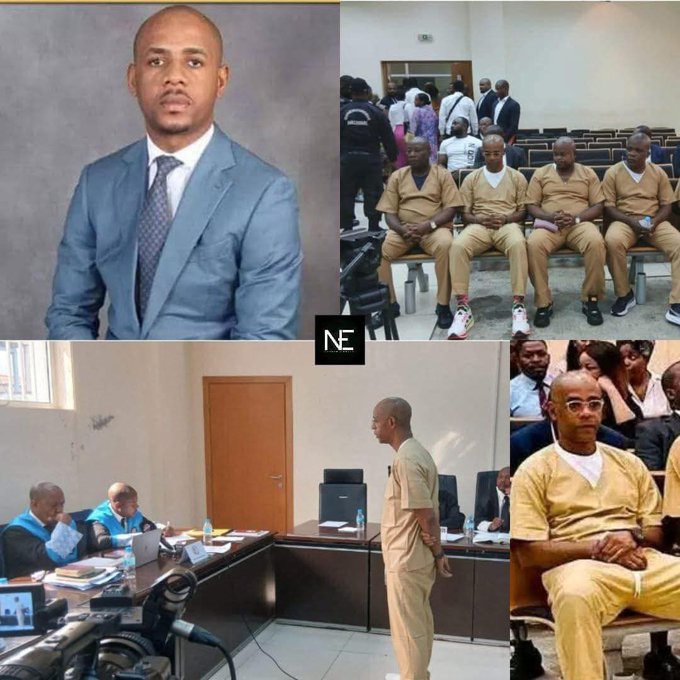
A senior government official in Equatorial Guinea, Baltasar Ebang Engonga, popularly known as “Bello”, has been sentenced to eight years in prison after being convicted of embezzlement in a scandal that shook the nation with both financial crimes and viral sex tapes.
The Bioko provincial court found Engonga guilty of diverting hundreds of thousands of dollars through fake travel claims for personal gain, according to Supreme Court press director Hilario Mitogo.
Engonga, a married former head of the National Financial Investigation Agency, first hit global headlines last November when explicit sex tapes leaked online. The videos, some allegedly filmed in his Finance Ministry office, featured him with wives of fellow senior officials.
The scandal triggered a storm of online ridicule, sparking parody songs, skits, and viral dance challenges, with even a cheeky reference appearing in Burna Boy’s hit track “Tatata.”
Alongside five other senior officials, Engonga was ordered to pay a $220,000 fine in addition to serving his prison sentence.
The case has fueled fresh debates about corruption and abuse of office within Equatorial Guinea’s ruling elite, in a country long criticized for lack of transparency despite its vast oil wealth.
Follow BONA NAIJA for more
-

 Business3 weeks ago
Business3 weeks agoUnity Bank Corpreneurship Challenge Empowers 578 Young Entrepreneurs, Awards ₦16 Million to 30 New Winners
-
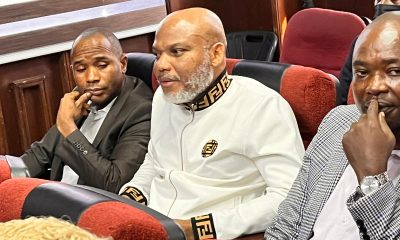
 Abuja2 weeks ago
Abuja2 weeks agoIPOB Leader Nnamdi Kanu Declines to Enter Defence, Insists “No Case” Against Him
-

 News3 weeks ago
News3 weeks ago16 Nigerian Military Officers Arrested Over Alleged Coup Plot to Oust President Tinubu
-
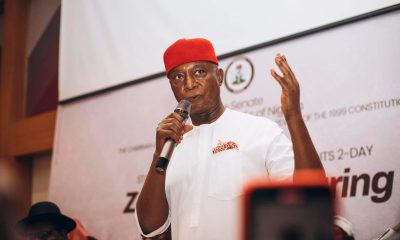
 Lifestyle3 weeks ago
Lifestyle3 weeks agoNed Nwoko Drops Bombshell, Says ‘Men Marrying Multiple Wives Are Helping Women’
-

 Music News2 weeks ago
Music News2 weeks agoFlavour Unveils ‘Afroculture’ Single Featuring Baaba Maal, Directed by TG Omori
-

 World News2 weeks ago
World News2 weeks agoTwo Killed, Two Injured as Plane Bursts Into Flames After Takeoff Crash in Venezuela
-

 Travel3 weeks ago
Travel3 weeks agoFRSC Flags Off 2025 Ember Months Campaign, Unveils Contactless Biometric Driver’s Licence System
-

 News3 weeks ago
News3 weeks agoNed Nwoko Gives Reason for Clash with Regina Daniels
-

 Music3 weeks ago
Music3 weeks agoAyra Starr & Rema’s “Who’s Dat Girl” Debuts at #1 on Spotify Nigeria
-

 Entertainment3 weeks ago
Entertainment3 weeks agoRema and Ayra Starr Dance to Wizkid Tracks at Lagos Club After ‘Who’s Dat Girl’ Release



